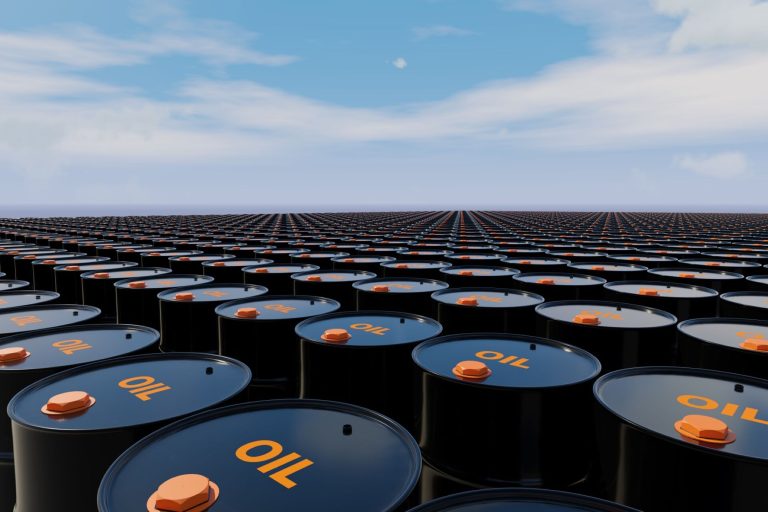The Measure of Progress
Libya is preparing to raise its oil production target to 1.6 million barrels per day — a milestone that reflects both ambition and renewal. It marks the return of confidence in one of the country’s most vital sectors. Yet as production increases, so does the need for reflection. The measure of national progress cannot rest on quantity alone.
In the global energy landscape, success is no longer defined by how much a nation produces, but by how efficiently, transparently, and sustainably it manages what it produces. Production is a means, not an end. Real progress occurs when output growth supports stability, strengthens systems, and creates opportunities for the generations ahead.
Raising production is an achievement, but the deeper goal is to ensure that growth contributes to economic diversification, infrastructure improvement, and institutional resilience. The future of Libya’s energy sector will depend not just on how much it produces, but on how that production is used to build capacity and value beyond the oil fields.
The Quantity Question, Why “More” Isn’t Always “Better”
For decades, the global energy industry equated rising production with progress. Every increase was seen as a symbol of national strength. Over time, however, it became clear that producing more did not always mean developing better.
In a fast-changing world, energy markets have become more complex and volatile. Price swings, technological disruption, and the rise of alternative energy sources have reshaped the meaning of success. Many producers now prioritize reliability, efficiency, and diversification over raw output. The ability to maintain balanced growth matters more than reaching record highs.
For Libya, the lesson is straightforward. Expanding production can bring significant benefits, but only if it is pursued within a strategy that supports long-term resilience. The objective should be to grow sustainably, producing in a way that balances national income with infrastructure investment, innovation, and preparation for the future.
Building Value Through Reliability
Reliability has become one of the most important benchmarks of success in the energy sector. Nations that maintain stable, consistent production earn the confidence of global partners and attract long-term investment. Predictability, rather than peaks or records, is what turns output into lasting value.
Sustaining that reliability requires continued investment in modernization and maintenance. Updating facilities, introducing digital monitoring systems, and improving efficiency are essential for long-term stability. These measures extend the life of infrastructure, reduce costs, and make production more environmentally responsible.
Reliability also strengthens national credibility. When production is consistent and operations are efficient, partners view the sector as dependable. This trust supports broader economic growth, attracting collaboration and reinforcing Libya’s reputation as a steady and capable energy producer.
Transparency and Trust, The Economic Multiplier
Reliability builds stability, but transparency builds confidence. Open and consistent reporting of production data, investment outcomes, and project progress creates trust among both domestic and international stakeholders.
Transparency is also a gateway to modernization. Aligning with global standards on disclosure, sustainability, and efficiency signals readiness to operate within the world’s evolving energy system. It demonstrates that Libya’s energy industry values accountability and professionalism, attributes that matter to investors, partners, and citizens alike.
The effects of transparency extend far beyond the energy sector. When governance is open and predictable, confidence spreads throughout the economy. Trust attracts investment, encourages innovation, and fosters collaboration across industries. Over time, transparency becomes an asset, one that generates returns through stability and growth.
Reinvesting for Renewal, Turning Barrels into Bridges
Every barrel of oil represents a resource that can drive transformation. The question is how to turn temporary gains into long-term progress. Reinvesting production revenues into diversified industries, infrastructure, and education ensures that today’s energy success becomes tomorrow’s economic foundation.
Diversification is the cornerstone of renewal. Oil revenues can fund industrial development, logistics networks, and renewable energy projects that extend prosperity beyond hydrocarbons. Refining and petrochemical investments, such as the Southern Refinery and the restarted methanol operations in the Sirte Basin, exemplify how reinvestment transforms raw resources into higher-value products and industries.
Reinvestment also builds human capital. Training programs, research initiatives, and technology partnerships equip future generations with the skills needed to lead the next phase of growth. When revenues support innovation and education, oil becomes more than an export, it becomes a bridge to new industries and opportunities.
A Smarter Output Strategy, The Road to Long-Term Prosperity
Libya’s path forward depends on producing wisely. A smarter output strategy balances expansion with efficiency, ensuring that every increase in production strengthens economic stability and social development.
Smart production is about quality, not quantity. It prioritizes steady, efficient output over short-term surges and integrates environmental awareness with operational discipline. It treats every barrel as part of a larger development cycle, one that fuels investment in technology, infrastructure, and diversification.
Three principles can guide this approach. The first is reliability: ensuring production stability through modernization and planning. The second is transparency: maintaining open systems that build trust at home and abroad. The third is reinvestment: channeling energy revenues into lasting industries and knowledge. Together, they create a balanced framework for sustainable prosperity.
This vision extends beyond the oil sector. A consistent, transparent, and reinvested energy system lays the groundwork for manufacturing, renewable energy, and innovation. It transforms hydrocarbons from a commodity into a catalyst, one that powers inclusive national renewal.
Libya’s next chapter in energy development will be defined not by how fast production rises, but by how effectively it contributes to a stronger, more diversified economy. Growth that is reliable, transparent, and reinvested becomes more than production, it becomes progress.
